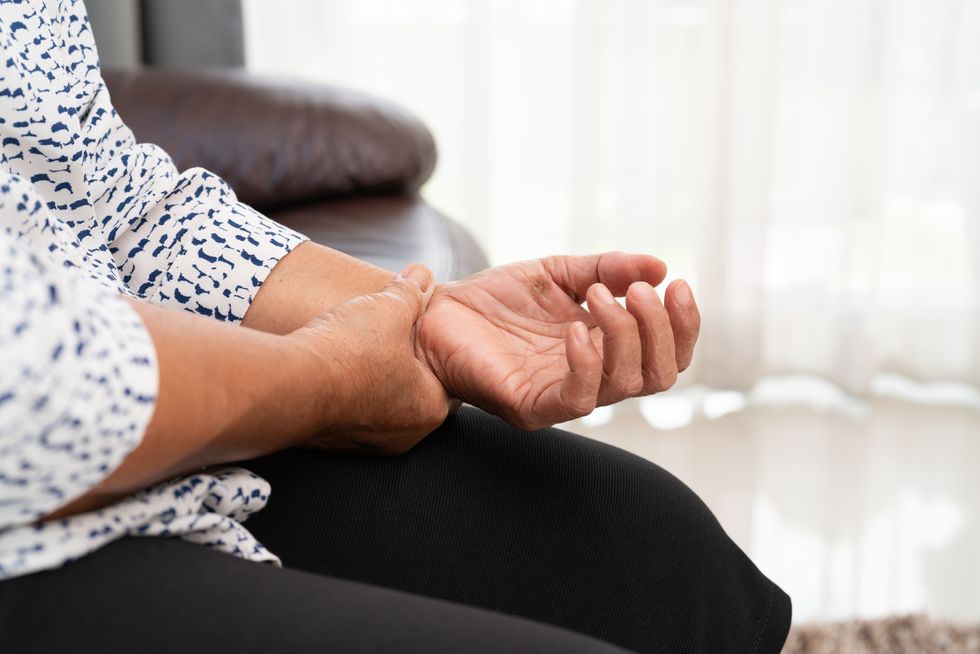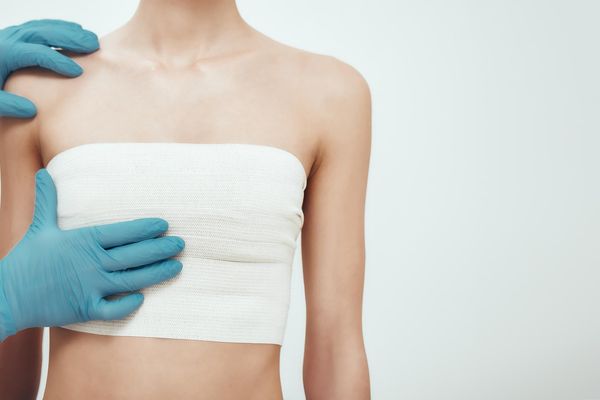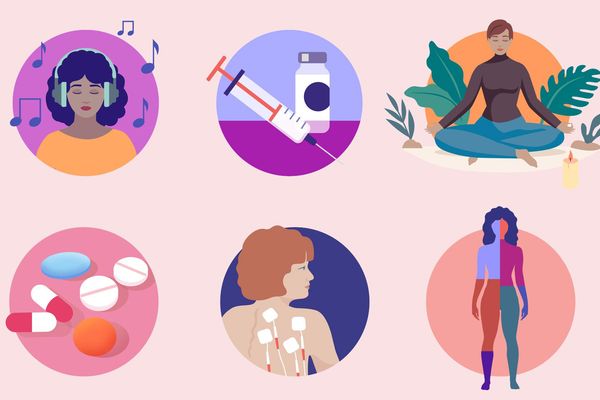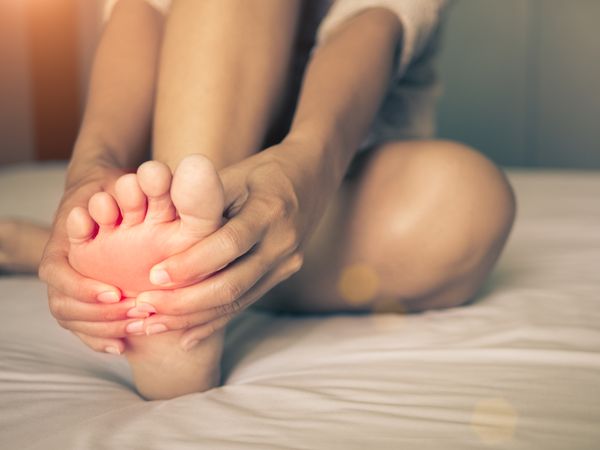Dear HealthyWomen,
As my mother always warned me that to get older is to feel some aches and pains. And I'm feeling them! My knees, my back, my.… And I'm finding lots of kinship among my middle-aged pals.
I keep hearing that CBD helps relieve chronic pain. Is it really the miracle cure it claims to be? If so, I'm tempted to run out and buy some CBD.
But I'm cautious and have a lot of questions. It seems like the claims might be too good to be true. Are they?
Signed,
CBD, or Not
Dear CBD, or Not,
Yes, CBD is all the rage and, if you happen to live in a state where it's legal, you might be seeing it sold on just about every street corner in many iterations. CBD lattes. CBD gummies. CBD-infused spa treatments. CBD for XYZ.
Here's what we know, so far.
CBD, or cannabidiol, is a chemical compound derived from cannabis, a hemp plant that differs only from the marijuana plant because it contains less THC, or tetrahydrocannabinol, which produces marijuana's mind-altering effects.
CBD doesn't produce the euphoric "high" or psychoactive effects of cannabis. Instead, it's supposed to produce a feeling of calm or relaxation. Read more about CBD for Women: What Are Women Using CBD For?
Instead of messing with your mind, CBD encourages the body to use its own endocannabinoids more efficiently by interacting with them to produce pharmacologic effects in the central nervous and immune systems. (Sounds like a mouthful, but basically CBD influences the activity of endocannabinoid receptors and in turn, activates other receptors that control things like pain perception and inflammation.) There are endocannabinoids and receptors throughout our bodies: in our brains, organs, connective tissues, glands and immune cells—just about all of the body's organs. One researcher calls them the "bridge between body and mind."
That's why a lot of people are interested in using CBD and hopeful that it will help ease or manage their pain.
Still, the jury is still out. Although CBD is widely used, the only strong research and evidence of its effectiveness has been done with a specific and rare form of childhood seizure disorders called Dravet syndrome and Lennox-Gastaut syndrome (LGS), which do not respond to antiseizure medications.
Experts say that more studies are needed in humans to determine the scope of what CBD can and cannot do. Some (that have been done on animals) have found CBD to be effective for nerve pain and the pain and inflammation of arthritis.
The studies that do point to CBD's possible effectiveness say that it may limit inflammation in the brain and nervous system; that it stops the body from absorbing a compound associated with regulating pain and therefore may reduce the amount of pain a person feels; that it may help with insomnia and chronic pain and help people with multiple sclerosis (MS) by reducing spasms, one of the most common symptoms of MS.
The Arthritis Foundation has published advice from Daniel Chow, MD, a chronic pain expert. Here's what it shares:
- Use low doses, which seem to work best for pain relief.
- Start with a CBD-only product, 5 to 10 mg twice daily, and then slowly increase, going up to dose of 50 to 100 mg per day. If that doesn't help, try a CBD product with a low dose of THC. (But remember that THC remains illegal in many states and is only approved with a prescription for medical use in some others.)
- Use only at night at first; slowly increase dose if needed.
- Edibles' effects last longer than vaping, so don't try them until you know what CBD strain and dose work for you.
- Use caution if you are 25 years old or younger and using CBD products that contain THC. This age group is at highest risk of addiction, dependency or even psychosis.
If you do choose to treat your pain with CBD, it's best to be aware of a few facts.
- CBD doesn't come without its side effects, which include nausea, fatigue and irritability. And like grapefruit juice, CBD can raise the level of certain medications in your bloodstream (if you take the blood thinner warfarin, beware). Always check with your health care professional before taking CBD or other over-the-counter supplements or medications.
- Many products do not contain the amount of CBD they claim.
- The amount of CBD in products varies widely. Some contain very small concentrations of CBD, while others contain very large amounts. For instance, manufacturer Bluebird Botanical's CBD lotions contain 700-plus mg of cannabinoids per 100 mL, while other currently available topical products contain just 50 mg of cannabinoids per 100 mL.
- Because it's not sold as a supplement, rather than a medication, CBD's safety and purity are not regulated by the U.S. Food and Drug Administration.
- If you take sedatives or other sleep-inducing medications, use CBD with caution, because it may enhance their effects.
- Taking a high daily dose (20 mg per kg of body weight or hundreds of milligrams) may result in decreased appetite, diarrhea, vomiting, fever or extreme fatigue.
- Products should be labeled with information on exact dosing and the type of CBD they contain. Terms for real CBD include full-spectrum, broad-spectrum, isolate or nano.
- Because there are not enough studies on humans, it's tough to know what an effective dose of CBD would be.
Brandon Beatty, CEO of Bluebird Botanicals, a leading manufacturer and distributor of hemp extracts and CBD oils, offers this advice: "Look for the concentration of cannabinoids per milligram. Check the ingredients to make sure they indicate the use of a full-plant extract as opposed to hemp seed oil, because only a full-plant extract will actually contain any amount of CBD. Hemp seed oil does not contain CBD, but it is often used as an emulsifier in many beauty products.
"Also be sure to look on the company's website for third-party lab testing to make sure there are no harmful contaminants in your product, such as pesticides, heavy metals, mycotoxins, and residual solvents. We also recommend looking for products with 'clean,' natural ingredients, which is what we like to call 'wellness the way Mother Earth intended.'"
Also, check the laws where you live. Even in areas where medical or recreational marijuana is legal, some federal agencies and state laws still restrict CBD. It's all very confusing.
thePause: The bottom line? If you do choose to try CBD, proceed with caution and remember that there has been little medical research done on CBD. Check with your health care professional, if for no other reason than to make sure it won't interact with any medications you currently are taking.







